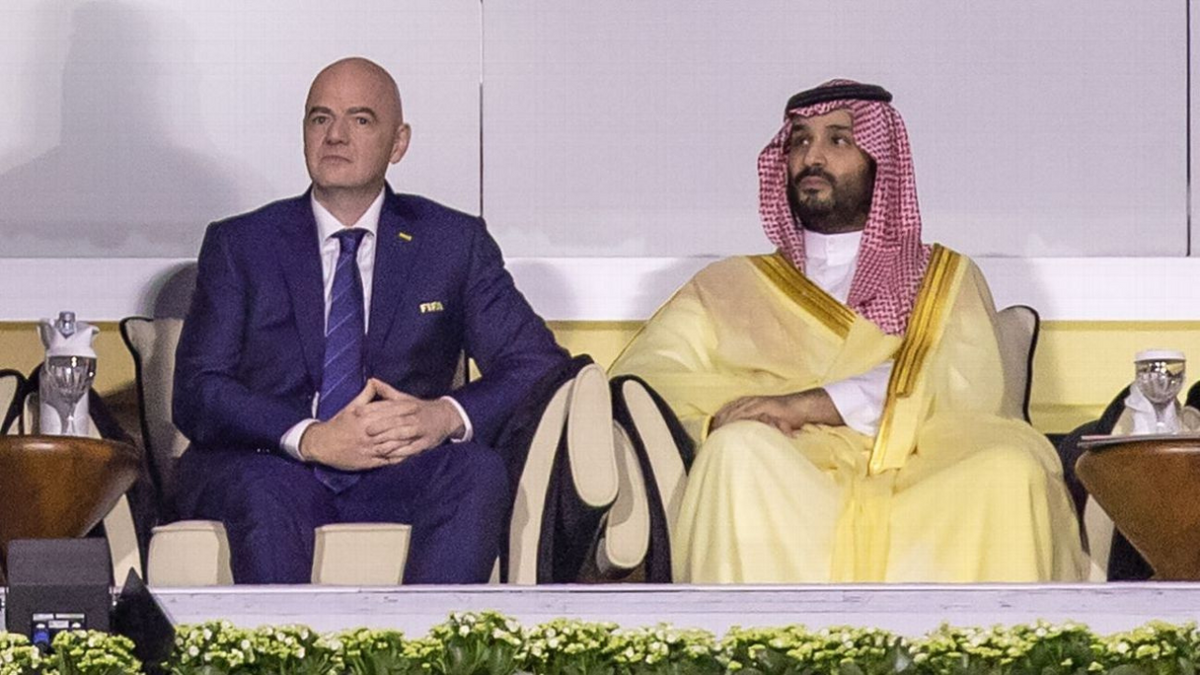
0
By clicking the button, I accept the Terms of Use of the service and its Privacy Policy, as well as consent to the processing of personal data.
 Follow Us
Follow Us
Image: ESPN
More than 100 professional women footballers have united to protest FIFA’s controversial partnership with Saudi Arabia’s national oil company, Saudi Aramco. In a significant move, 106 players from 24 countries signed an open letter, urging FIFA to end its relationship with the oil giant, accusing the football governing body of undermining women’s football and aligning with a regime known for its poor record on human rights, especially concerning women and LGBTQ+ communities.
In April, FIFA announced Saudi Aramco as a major global sponsor, granting the company sponsorship rights for both the 2026 Men’s World Cup and the 2027 Women’s World Cup. The partnership immediately sparked controversy due to Saudi Arabia’s human rights record, particularly its treatment of women and LGBTQ+ individuals. Now, over 100 top women’s football players have taken a public stand, expressing their concerns directly to FIFA President Gianni Infantino in an open letter, as reported by The Athletic.
Led by prominent names like Becky Sauerbrunn (USA), Jessie Fleming (Canada), and Vivianne Miedema (Netherlands), the letter condemns the partnership as regressive. It highlights Saudi Arabia’s systemic oppression of women and the criminalization of LGBTQ+ relationships, arguing that such a partnership is a contradiction to the values of equality and inclusion that women’s football stands for. The players are particularly disturbed by the idea that, during the 2027 Women’s World Cup, they might be expected to endorse a company representing a regime that fundamentally opposes the rights many of them fight for.
One excerpt from the letter reads, “Imagine LGBTQ+ players, many of whom are heroes of our sport, being expected to promote Saudi Aramco during the 2027 World Cup, the national oil company of a regime that criminalizes the relationships that they are in and the values they stand for.” The letter calls on FIFA to replace Aramco with sponsors that align with principles of gender equality, human rights, and environmental sustainability.
Portland Thorns defender Becky Sauerbrunn has been particularly vocal, condemning FIFA’s decision. She stated, “The fact that FIFA is aligning itself with a company and regime that treats women in this way is condemnable. As female players at the top of our sport, we’re using our voices to say this is not a partnership we can support.”
Sauerbrunn emphasized that women’s rights, LGBTQ+ rights, and the planet’s health should take precedence over FIFA’s pursuit of financial gain. Her stance sheds light on the ethical responsibility that organizations like FIFA have when choosing partners, especially in a global sport that champions diversity and inclusion.
In response to the criticism, FIFA defended the partnership with Aramco. A spokesperson highlighted that the revenues generated from such deals are reinvested into football development, including women’s football. FIFA cited the success of the 2023 Women’s World Cup, which benefited from groundbreaking investment models, as evidence of its commitment to growing the women’s game.
FIFA’s updated Women’s Football Strategy (2023-2027) also highlights that commercial revenues will be used to further develop women’s football globally. However, the players’ protest suggests that for many, the moral implications of partnering with companies linked to human rights abuses cannot be outweighed by financial gains.
This is not the first time FIFA’s ties with Saudi entities have drawn backlash. In 2023, FIFA considered unveiling Visit Saudi, the country’s tourism board, as a sponsor for the Women’s World Cup in Australia and New Zealand. That plan was abandoned after public criticism, including strong objections from players and advocates.
The open letter by the 106 players has once again brought FIFA’s corporate decisions into the spotlight, raising questions about whether the Aramco partnership will endure or face the same fate as the Visit Saudi proposal. The players’ message is clear: the integrity of women’s football and its values must not be compromised for the sake of financial partnerships.
In the coming months, it will be crucial to see whether FIFA reassesses its relationship with Saudi Aramco or continues to stand by its decision. The outcome will likely shape the future of corporate sponsorships in women’s sports and the broader conversation about ethics in global football.
Subscribe to our Newsletter!
Share this article
If you liked this article share it with your friends.
they will thank you later

